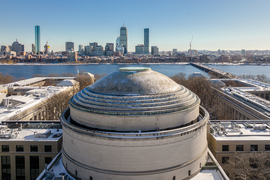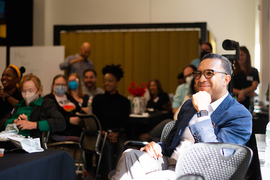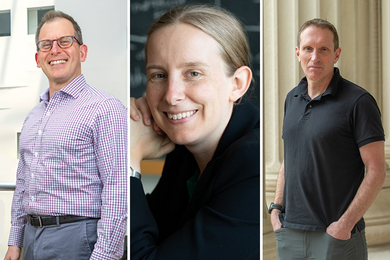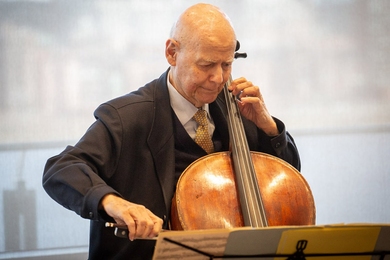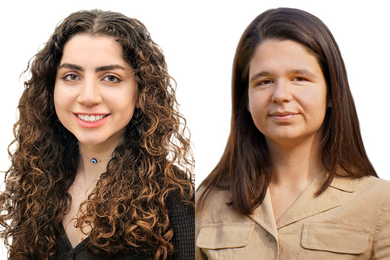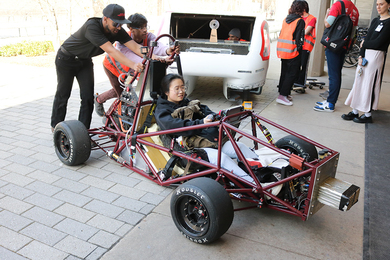Richard Ovenden was dressed appropriately for the start of Banned Books Week. He proudly displayed the American Library Association’s “Free people read freely” T-shirt as he approached the podium at Hayden Library on Oct. 2. Ovenden, Bodley’s Librarian at the University of Oxford, spoke about the willful destruction of recorded knowledge for an event titled “Book Wars,” the inaugural event in a new series called Conversations on Academic Freedom and Expression (CAFE), a collaboration between the MIT Libraries and History at MIT.
“The idea for CAFE is to introduce the MIT community to the broader landscape of what’s going on in the world of academic freedom and free expression, beyond some of our local exchanges,” says Malick Ghachem, history professor and department head and a member of MIT’s Ad Hoc Working Group on Free Expression.
“The libraries were a natural partner for the CAFE series,” says Chris Bourg, director of MIT Libraries. “The value of free and open access to information underpins everything we do.”
Ovenden, who writes extensively on libraries, archives, and information management, is the author of “Burning the Books: A History of the Deliberate Destruction of Knowledge,” which was shortlisted for the Wolfson History Prize in 2021. In his MIT talk he provided a historical overview of attacks on libraries — from the library of Ashurbanipal in the Assyrian capital of Nineveh (now northern Iraq), destroyed by fire in 612 BC, to book burning under the Nazi regime to current efforts across the United States to remove or restrict access to books.
In spite of this history of loss, Ovenden finds hope in “the human impulse to preserve, to pass on, to bear witness, to allow for diverse ideas to thrive.” He detailed the extraordinary actions people have taken to save knowledge, citing the “Paper Brigade,” a forced labor unit of poets and intellectuals in Nazi-occupied Vilnius who smuggled and hid rare books and manuscripts, and the tragic death of Aida Buturovic, a 32-year-old librarian who was killed as she tried to rescue books during the 1992 assault on the National and University Library in Sarajevo.
Ovenden concluded by making the case that libraries and archives are the infrastructure for democracy — institutions dedicated not only to education, but to safeguarding the rights of citizens, providing reference points for facts and truth, preserving identity, and enabling a diversity of views. Despite millennia of attacks, libraries continue to fight back, most recently with public libraries expanding digital access to combat book bans nationwide.
Following Ovenden’s talk, Ghachem led a discussion and audience Q&A that touched on the connections between book bans and so-called “cancel culture,” how censorship itself is used as a means of expressing political views, and growing distrust of expertise.
The CAFE series is one of several opportunities to engage the Institute community that emerged from the Report of the MIT Ad Hoc Working Group on Free Expression. Ghachem also started a new first-year advising seminar, “Free Expression, Pluralism, and the University,” and the Institute Community and Equity Office launched Dialogues Across Difference: Building Community at MIT. A second CAFE event is being planned for the spring term.
“At this moment in our history, we should try to encourage discussion, and not debate,” said Ovenden. “We must try to move away from this idea that it’s a contest, that it’s a battle, and encourage and foster the idea of listening and discussion. And that's all part of the deliberation that I think is necessary for a healthy society.”
“Book Wars: CAFE with Richard Ovenden, Bodley’s Librarian, Oxford” was co-sponsored by MIT Libraries, MIT History, and MIT Open Learning.



